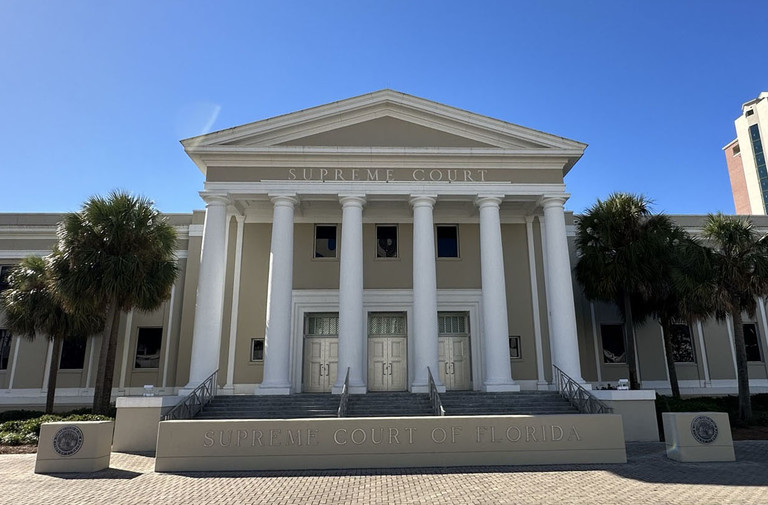As Florida grapples with soaring law school costs and heated debates over diversity mandates, the state’s highest court just dropped a bombshell report outlining 12 innovative paths to shake up bar exam eligibility. This move could slash tuition burdens for aspiring lawyers and spark a nationwide rethink on who gets to practice law.
The Florida ABA accreditation alternatives debate has exploded in recent months, fueled by criticisms of the American Bar Association’s (ABA) standards on DEI in legal education, bar admission reform, and the overall expense of law school. On October 28, 2025, the Supreme Court’s Workgroup on the Role of the American Bar Association in Bar Admission Requirements submitted its eagerly awaited report, identifying a dozen strategies to lessen—or even eliminate—reliance on ABA approval for Florida law schools. Chaired by former Justice Ricky Polston, the six-member panel was formed in March amid growing conservative pushback against what some call the ABA’s “political overreach.”
Background on this seismic shift traces back to Administrative Order SC25-15, issued by Chief Justice Carlos G. Muñiz. Florida’s rules have mandated ABA-accredited degrees for bar exam takers since 1955, with the ABA as the sole recognized body since 1992. Yet, with 12 ABA-approved schools churning out most of the state’s 2,890 annual first-time bar applicants, questions linger: Do these standards stifle innovation, inflate costs, and impose ideological biases? The workgroup, extended its deadline to October 30, pored over public input—overwhelmingly favoring reduced ABA influence—and consulted stakeholders from academia to the DOJ.
Key workgroup members include U.S. District Judge Allen Winsor, Florida State University Law Dean Erin O’Connor, and veteran litigator John F. Barkett. Their report doesn’t outright ditch the ABA but charts flexible routes forward. “We’re not closing doors; we’re opening windows to a more accessible, affordable legal profession,” Polston remarked in a court statement.
The 12 alternatives blend bold reforms with practical tweaks, each vetted for protecting public access to quality legal services:
- State-Led Accreditation System: Florida establishes its own rigorous review process, mirroring models in California and Virginia, to certify schools independently.
- Supreme Court Direct Approval: The court greenlights non-ABA schools based on curriculum, faculty quals, and bar passage rates, streamlining provisional setups.
- Expanded Apprenticeship Programs: Pair classroom learning with supervised clerkships, akin to historical “reading the law” traditions, cutting tuition by up to 50%.
- Competency-Based Admission: Shift focus from degrees to skills demos via portfolios, exams, or simulations, emphasizing practical readiness over pedigree.
- Recognition of Regional Accreditors: Accept approvals from bodies like the Southern Association of Colleges and Schools, broadening options for innovative programs.
- Diploma Privilege Pilot: Grant automatic bar eligibility to grads from court-vetted schools, tested in select institutions to gauge outcomes.
- Hybrid Online/In-Person Models: Fast-track approval for tech-forward schools, addressing post-pandemic demands for flexible, lower-cost education.
- Bar Exam as Sole Gatekeeper: Eliminate degree requirements entirely for high scorers, prioritizing performance over institutional stamps.
- Collaborative ABA Reforms: Negotiate with the ABA to decouple its accrediting arm from policy advocacy, easing DEI mandates.
- Provisional Status Expansion: Extend temporary approvals for emerging schools, with pathways to full state recognition after three years.
- Interstate Reciprocity Pacts: Partner with like-minded states (e.g., Texas, Utah) for mutual recognition of non-ABA credentials.
- Innovation Incubator Grants: Fund experimental law programs via state incentives, rewarding those that boost diversity through merit-based access.
Public reactions pour in hot and heavy. “This is a lifeline for students drowning in $200,000 debt,” cheered University of Miami Law Professor Jane Doe in a LinkedIn post, echoing sentiments from over 80% of commenters who slammed ABA fees for driving up costs. Critics, including ABA Managing Director Jennifer Rosato Perea, urge caution: “We’re committed to evolving standards that foster excellence without barriers.” Yet, Florida Attorney General James Uthmeier hailed it as “a strike against ideological gatekeeping.”
For everyday Floridians, the stakes hit close to home. Cheaper legal education could flood the market with attorneys, easing fees for small businesses and families navigating evictions or estates—vital in a state with booming population but strained services. Politically, it amplifies the GOP-led war on DEI, post the 2023 Supreme Court affirmative action ban, potentially inspiring red states to follow suit. Economically, experts like FSU’s O’Connor predict a 20-30% tuition drop, spurring innovation in edtech and apprenticeships while safeguarding bar passage rates above 70%.
As Florida’s justices mull these Florida bar exam changes and law school reform options, the report sets the stage for rule tweaks by early 2026. Watch for public hearings that could redefine access to justice for generations.
By Sam Michael
Follow us on social media and subscribe for push notifications to stay ahead of breaking news—your daily dose of unfiltered insights awaits!
Florida ABA accreditation alternatives, bar admission reform, law school costs, DEI legal education, Florida Supreme Court report, ABA alternatives, law school innovation, Florida bar exam, legal profession access, state accreditation system
